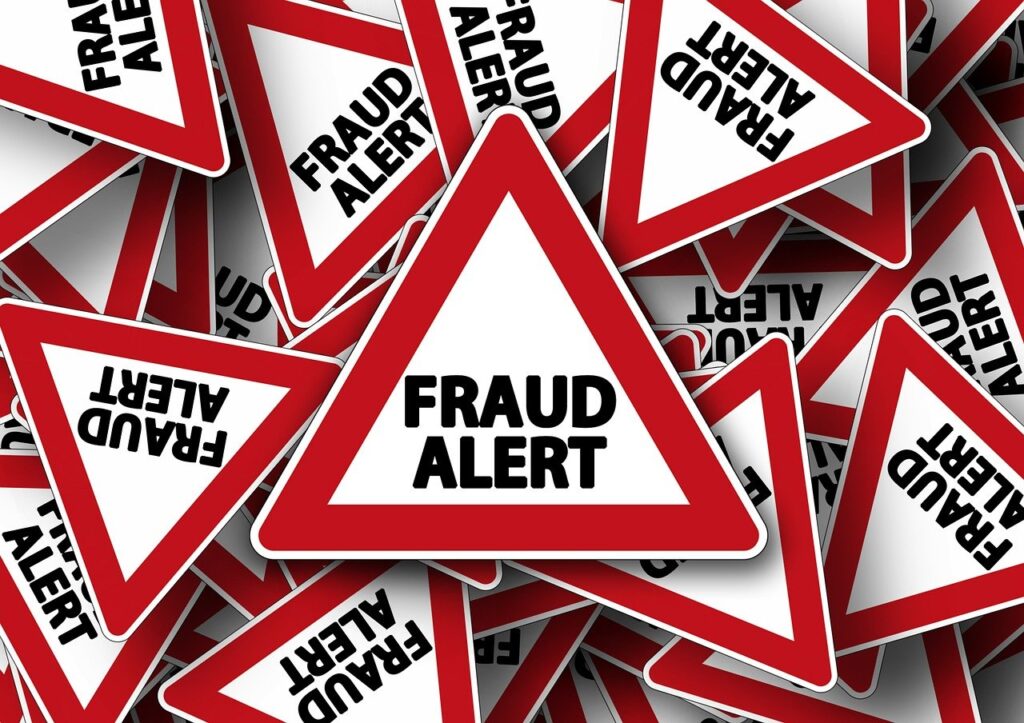In the evolving landscape of personal injury litigation, a new challenge has emerged for attorneys and investigators: cryptocurrency. These digital assets can be deliberately concealed during legal proceedings, potentially undermining fair settlements and judgments. This guide explores how to identify and track hidden crypto assets in personal injury claims and address crypto-related fraud.
Table of Contents
- 1 The Growing Problem of Hidden Crypto Assets in Personal Injury Claims
- 2 How to Find Hidden Crypto Assets: Investigation Techniques
- 3 Common Signs of Crypto Fraud
- 4 Warning Signs of Cryptocurrency Fraud
- 5 Protective Measures and Legal Recourse
- 6 Steps in a Crypto Fraud Investigation
- 7 Tools and Techniques Used in Crypto Fraud Investigations
- 8 Blockchain Analysis Software and Forensic Tools
- 9 Tracing Cryptocurrency Transactions Through Wallets and Exchanges
- 10 Identifying Red Flags in Cryptocurrency Activity
- 11 Filing a Civil Lawsuit for Financial Recovery
- 12 Reporting to Government Agencies (SEC, FTC, FBI)
- 13 Seeking Restitution Through Crypto Exchanges or Platforms
- 14 How a Crypto Fraud Lawyer Can Help You
The Growing Problem of Hidden Crypto Assets in Personal Injury Claims
Personal injury claims rely on full financial disclosure from all parties. Unfortunately, some defendants or claimants may attempt to hide assets, including cryptocurrency, to avoid fair compensation or inflate damages. With cryptocurrency’s pseudonymous nature and minimal regulation, it has become an attractive vehicle for concealing wealth.
When a defendant claims inability to pay a settlement while holding substantial crypto assets, or when a claimant understates their financial recovery to maximize damages, the integrity of the legal process is compromised.
How to Find Hidden Crypto Assets: Investigation Techniques
Uncovering concealed cryptocurrency requires specialized knowledge and investigation methods:
1. Digital Forensics: Examining electronic devices can reveal wallet applications, exchange accounts, or transaction histories that indicate crypto ownership.
2. Financial Analysis: Unusual money movements, particularly to known cryptocurrency exchanges, may signal attempts to convert traditional currency to digital assets.
3. Blockchain Analysis: Public blockchain records can be analyzed to track transactions, even when parties attempt to obscure ownership through multiple wallets.
4. Exchange Subpoenas: Legal tools can compel cryptocurrency exchanges to provide account information and transaction histories for parties under investigation.
5. Social Media Investigation: Individuals sometimes inadvertently reveal crypto holdings through social media posts or forum discussions.

Common Signs of Crypto Fraud
When pursuing a crypto fraud lawsuit, understanding the warning signs of fraudulent activity is essential. Effective tracking of cryptocurrency movements can help identify potential fraud before significant losses occur. Here are key indicators that may signal you’re dealing with cryptocurrency fraud:
Warning Signs of Cryptocurrency Fraud
- Unusual Account Activity: Unexpected transactions or changes in your cryptocurrency balance often serve as the first indicator of compromise. Comprehensive crypto asset tracking systems should immediately flag these anomalies, potentially preventing further unauthorized access.
- Transactions with Unverified Wallets: Exercise extreme caution when receiving transaction requests from unknown or unverified wallet addresses. Legitimate cryptocurrency platforms typically provide verification mechanisms to help authenticate transaction partners and prevent fraud.
- Unexpected Asset Transfers: When tracking cryptocurrency holdings, pay particular attention to sudden movements of digital assets to unfamiliar destinations. Unauthorized transfers often occur rapidly, with assets moving through multiple wallets to obscure their trail before a victim discovers the theft.
- Anonymous Transaction Patterns: While blockchain technology inherently provides certain privacy features, fraudsters exploit these characteristics to conceal their identities. In a crypto fraud lawsuit, forensic blockchain analysis can sometimes overcome these anonymity attempts, particularly when the perpetrator eventually converts crypto to fiat currency.
- Suspicious Information Requests: Legitimate platforms rarely request sensitive personal information through unofficial channels. Be wary of communications asking for login credentials, wallet recovery phrases, or private keys—these requests typically indicate phishing attempts designed to gain control of your digital assets.
Protective Measures and Legal Recourse
Implementing robust crypto asset tracking solutions provides the most effective protection against potential fraud. These platforms can monitor blockchain activity in real-time, alerting you to suspicious transactions before significant losses occur.
If you become a victim of cryptocurrency fraud, documenting all relevant transaction data becomes crucial for any potential crypto fraud lawsuit. Preserving evidence of unauthorized access, unusual transaction patterns, and communication with suspected fraudsters significantly strengthens your legal position.
Remember that tracking cryptocurrency across blockchain networks often requires specialized expertise. When pursuing legal action, working with attorneys and forensic experts familiar with digital asset investigations dramatically improves your chances of asset recovery and successful litigation.
Steps in a Crypto Fraud Investigation
1. Assess the situation. – When cryptocurrency investment scams occur, a coordinated response follows to identify perpetrators and recover stolen assets. The process involves several critical steps:
2. Gather evidence. -Law enforcement first conducts a comprehensive assessment of the scam, identifying key players and their methods. They immediately begin collecting evidence through established cryptocurrency compliance frameworks to ensure documentation of all relevant activities.
3. Collect data on transactions. -Investigators then meticulously compile transaction data, mapping the movement of funds across the blockchain. This analysis includes a thorough examination under KYC and AML protocols to verify the legitimacy of all parties involved in the suspicious transactions.
4. Crypto compliance analysis. -Specialized tracing tools allow authorities to track digital currency through multiple wallets, revealing the path of stolen funds. For complex cases involving substantial sums or crossing international borders, additional law enforcement resources are deployed.
5. Trace funds. The ultimate goal is fund recovery through appropriate legal channels. Legal professionals work alongside investigators to return assets to their rightful owners, using every available resource to restore financial integrity to victims of the scam.
Tools and Techniques Used in Crypto Fraud Investigations
Digital forensics specialists certified in cryptocurrency tracing employ sophisticated blockchain analysis tools to detect fraudulent transactions. During complex investigations, examiners leverage advanced tracing technologies that identify suspicious patterns and anomalous activities across distributed ledgers.
These specialized tools provide critical support to legal teams and law enforcement agencies, enabling them to effectively track misappropriated digital assets and develop compelling cases against perpetrators. The technology proves essential for comprehensive asset tracing, revealing both the movement pathways and final destinations of illegitimately acquired funds.
Blockchain Analysis Software and Forensic Tools
Investigators leverage specialized blockchain analysis software to monitor cryptocurrency movements by following the permanent digital trail recorded on distributed ledgers. These sophisticated forensic applications enable specialists to identify concealed wallet addresses and reveal transaction networks connected to fraudulent activities.
Tracing Cryptocurrency Transactions Through Wallets and Exchanges
Cryptocurrency transaction tracing involves investigators methodically following the electronic pathway from one digital wallet to another until identifying an exchange endpoint. This systematic tracking process reveals the destination of misappropriated assets.
This forensic approach enables authorities to pinpoint potential suspects and uncover illicit operations. Such meticulous transaction mapping proves essential for both asset recovery efforts and establishing the legal foundation necessary to pursue justice against those responsible for cryptocurrency theft.
Identifying Red Flags in Cryptocurrency Activity
Forensic investigators monitor several critical signals when hunting for cryptocurrency-related financial crimes. They particularly focus on transfers to unverified wallets that deviate from established patterns, as these often serve as first indicators of potential scams.
Analysts carefully examine transaction metrics, flagging accounts displaying unusually high volumes or frequent transfers that may suggest money laundering or fraud schemes. They track complex fund movements across multiple virtual assets, which often reveals deliberate attempts to obscure the source of illegitimate funds.
Cryptocurrency forensic experts also investigate unexpected activity spikes that lack a reasonable explanation, as these typically indicate efforts to rapidly relocate illicit assets before detection. Additionally, investigators analyze behavioral anomalies in wallet usage, where established patterns suddenly change—a phenomenon that frequently helps expose and trace sophisticated cryptocurrency crimes.
Legal Options for Victims of Crypto Fraud
Individuals who experience cryptocurrency fraud can pursue multiple legal pathways to reclaim their assets. Filing a civil lawsuit offers victims a direct route to seek financial restitution from perpetrators.
Submitting fraud reports to regulatory authorities such as the Securities and Exchange Commission, Federal Trade Commission, or Federal Bureau of Investigation can trigger formal investigations into the matter. Additionally, victims may explore compensation options through the cryptocurrency exchanges or platforms where the fraudulent transactions occurred.
Filing a Civil Lawsuit for Financial Recovery
Victims of crypto scams have the option to file a civil lawsuit to pursue financial compensation from the individuals or entities responsible for their losses. This legal route provides a way to potentially recover stolen or lost crypto assets by holding the perpetrators accountable.
To file a lawsuit, victims must present clear evidence of the fraud and the financial harm they’ve experienced. Through the court system, they can make their case and seek restitution for their lost investments.

Reporting to Government Agencies (SEC, FTC, FBI)
Reporting crypto fraud to government agencies is an important step toward seeking justice and potentially recovering stolen assets. Agencies such as the SEC, FTC, and FBI are equipped to investigate cryptocurrency-related fraud and take enforcement action when necessary.
TheCommodity Futures Trading Commission (CFTC) also plays a key role, particularly with crypto assets classified as commodities, like Bitcoin and Ether. The CFTC enforces regulations against fraud and market manipulation in crypto trading. Victims can report suspicious behavior directly to the CFTC, which may initiate investigations or legal proceedings. Additionally, the agency provides educational resources to help the public identify and avoid crypto scams.
Seeking Restitution Through Crypto Exchanges or Platforms
Victims of cryptocurrency fraud may also pursue restitution through the exchange where the fraudulent activity occurred. Many crypto exchanges have protocols in place to assist users in recovering lost assets and addressing fraud-related incidents.
By reporting the scam to the exchange, victims can potentially trigger account freezes on wallets linked to suspicious behavior. Some platforms also have dedicated recovery teams that work to trace and return stolen funds. However, the recovery process can be complicated and often requires victims to submit thorough evidence to support their claims.
How a Crypto Fraud Lawyer Can Help You
If you’ve been targeted by a cryptocurrency scam, a crypto fraud lawyer can help. These legal professionals specialize in investigating fraud, identifying those responsible, and pursuing the recovery of lost assets. They also represent your interests throughout any legal proceedings.
With experience in crypto-related cases, a fraud lawyer can hold scammers accountable while guiding you through the legal process. They can also provide valuable advice on how to protect your digital assets and avoid future scams.



















